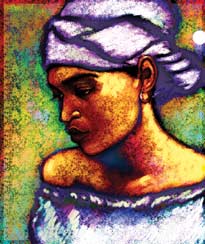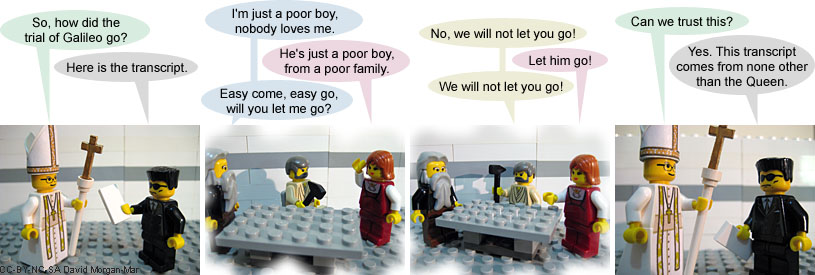“Bismillah!”
arts and leisure, Council for Better Driving, dining and cuisine, everyday glory, food for thought, games, LEGO and Rokenbok, movies and TV, news and info, politics and law, science and technology, style, travel, Whiskey Tango Foxtrot...?! February 11th, 2010Thursday – 11 February 2010
It’s snowing outside.
That’s not as radical a statement as “It’s snowing inside,” but considering that we were sunny and relatively clear-skied yesterday, it is a decided change. It’s cold enough that the snow is sticking to the ground, but warm enough that it’s not sticking to the roadways. Thus, the morning commute – and the commutes of those passing below our office windows – was relatively easy. Even so, the Council for Better Driving: Utah would like to remind drivers to be careful on the roads today.
Last night, SaraRules and I went to dinner at Outback Steakhouse. I was having a craving for their oh-so-tasty-yet-so-very-bad-for-you Aussie Cheese Fries. After dinner – a very filling, very satisfied dinner – we headed home for couch time: Human Target, Fringe and 24. When I’d had my fill of things going all ‘splodey, I called it a night.
Chew on This: Food for Thought – Black History Month
Today, there will not be a “Famous Person of the Day.” Instead, there will be two (2) of them:
Maulana Karenga
Ron Karenga (born Ronald McKinley Everett and also known as Maulana Karenga) is an African American author, political activist, and college professor best known as the creator of Kwanzaa.

Karenga was born on a poultry farm in Parsonsburg, Maryland, the fourteenth child of a Baptist minister. He moved to California in the late 1950s to attend Los Angeles City College, where he became the first African-American president of the student body. He was admitted to the University of California, Los Angeles (UCLA) as part of a federal program for students who had dropped out of high school, and received his master’s degree in political science and African studies.
At the beginning of the 1960s, Karenga met Malcolm X and began to embrace black nationalism. Following the Watts riots in 1965, he interrupted his doctoral studies at UCLA and joined the Black Power movement. During this time, he took on the title “maulana”, an Arabic word literally meaning “our lord” or “our master” and has been borrowed into the Swahili language, where it is used also as a title of respect for revered members of a community, religious or secular, roughly equivalent to the English “Sir”. “Karenga” meant “nationalist.” Earlier, he had called himself Ron Ndabezitha Everett-Karenga; Ndabezitha being Zulu for “your majesty.” He formed the US Organization, an outspoken Black nationalist group.
He was awarded his first Ph.D. in 1976 from United States International University (now known as Alliant International University) for a 170-page dissertation entitled Afro-American Nationalism: Social Strategy and Struggle for Community. Later in his career, in 1994, he was awarded a second PhD, in social ethics, from the University of Southern California (USC), for an 803-page dissertation entitled “Maat, the moral ideal in ancient Egypt: A study in classical African ethics.”
Karenga is the former Chairman of the Black Studies Department at California State University, Long Beach, a position he held from 1989 to 2002. He is the director of the Kawaida Institute for Pan African Studies and the author of several books, including his Introduction to Black Studies, a comprehensive black/African studies textbook now in its third edition.
Karenga founded the Organization Us, a Cultural Black Nationalist group, in 1965. He is also known for having co-hosted, in 1984, a conference that gave rise to the Association for the Study of Classical African Civilizations, and in 1995, he sat on the organizing committee and authored the mission statement of the Million Man March.
Anna Kingsley
Anna Madgigine Jai Kingsley (c. 1793 – April or May 1870) was a West African slave turned slaveholder and plantation owner in early 19th century Florida.

Anna Kingsley was born Anta Majigeen Ndiaye in 1793, in a portion of West Africa that was going through a tumultuous war between the majority Wolof people and the minority Fula. Slave raids were frequent occurrences among incessant violence that left many small villages deserted as people were either abducted for the purpose of selling into slavery or they fled in fear for their lives. Following an intensifying of the crisis in 1790, Anta was captured in 1806 when she was about 13 years old; she was sent to Cuba where she was purchased by and married to Zephaniah Kingsley, a slave trader and plantation owner.
Kingsley freed Anna in 1811 and put her in charge of his plantations in East Florida. For 25 years, Kingsley’s unique family lived on Fort George Island in modern-day Jacksonville, where Anna managed a large and successful planting operation, owning slaves of her own.
After Spain handed control of Florida over to the U.S. in 1822, the new government progressively enacted stricter ordinances separating the races. The mixed-race Kingsley family was directly and negatively affected by these “illiberal and inequitable laws”, as Kingsley stated in his will. Kingsley transferred all their holdings to the three older children and moved to Haiti in 1835. Anna and their youngest son followed in 1838. In all, 60 slaves, family members, and freed employees moved with Kingsley to Haiti to start a plantation called Mayorasgo de Koka; Zephaniah Kingsley died soon after.
Anna returned to Florida in 1846 to participate in the Kingsley estate defense, despite the increasingly tense racial climate in Duval County. The court, however, upheld a previous treaty signed between the U.S. and Spain stipulating that all free blacks born before 1822 in Florida enjoyed the same legal privileges as they had when Spain controlled East Florida. Anna furthermore asked for and was granted the transfer of ownership of slaves who had been sent to the San Jose plantation when the family had moved to Haiti, but her request to rent her slaves to other plantations to maximize her profits was rejected by the courts.
The National Park Service protects Kingsley Plantation, where Anna and Kingsley lived on Fort George Island, as part of the Timucuan Ecological and Historic Preserve.
Stray Toasters
- Thanks to telecommuting, snow days are no longer fun
- Michelle Obama on Sarah Palin: ‘I don’t know her’

- Fashion designer Alexander McQueen found dead
- Where Microsoft’s Money Really Comes From
- His Name Is Khan (And It’s One You Might Know)
What the movie has in common with many Bollywood fantasies is this: Khan’s character comes to America.
“I say this to everyone: Our fantasies are about earning a good living,” he says. “Having maybe a car — not two. Getting an education for your kids. Our fantasies are not about getting to be president of the country, to sit in a rocket and go and break a meteor. Our fantasies are very real.
“As a matter of fact,” he continues, “I find the Western cinema very fantastic. You’ve got aliens. And you’ve got things we don’t know about. Blue creatures. You have Batman, you have Superman. I remember the first time I was here — someone was interviewing me in a hotel, and they said, ‘Your films are such fantasies.'”
“And I’m like, We are fantasies? Our guys just want to sing and dance on the roads. Our guys just want to drive a big car. Our guys just want to come to America. You know, we don’t want to go to Pandora. America is our Pandora.”
- From the “Whiskey Tango Foxtrot…?!” file: American Airlines to charge $50 to fly standby
- This comes on the heels of their announcement that they will start charging $8 (USD) for a blanket and pillow pack in May
- HALO Legends comes out Tuesday.
That reminds me: I should fire up X-Men Legends again… - LEGO landmarks taken in $6,500 vehicle burglary

- MySpace CEO Owen Van Natta steps down
Namaste.
Leave a Reply
You must be logged in to post a comment.
